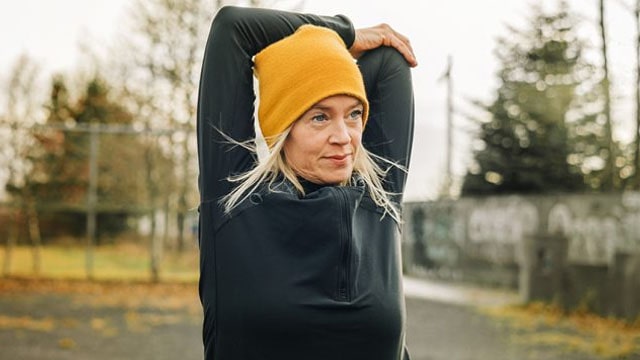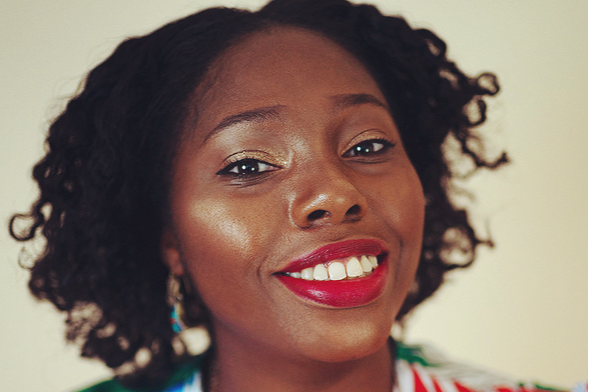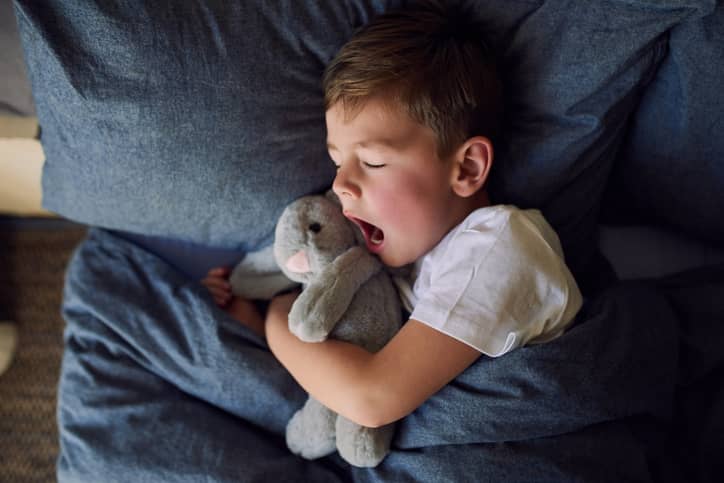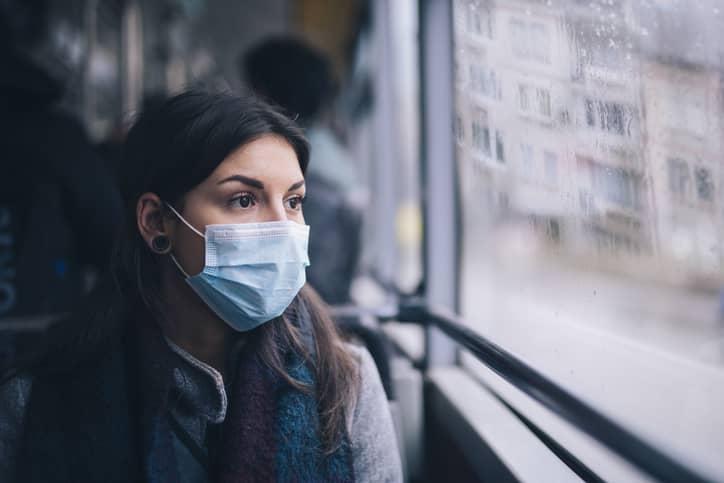What is COVID-19?
First seen in humans at the end of 2019, COVID-19 is an illness that affects your airways and lungs (a respiratory disease). It’s caused by a virus called SARS-CoV-2, which is a type of coronavirus.
Viruses also change over time and different strains called ‘variants’ can appear, which can lead to changes in the way the virus infects people and the symptoms it causes. Since the SARS-CoV-2 virus was discovered, several new variants have been identified, including the Delta and Omicron variants. More are likely to appear as time goes on.
Read on to learn more about COVID-19, including symptoms, risk factors and treatment, and what you can do to avoid getting it.
Is COVID-19 the same as coronavirus?
Coronaviruses are a large family of viruses that can infect humans and animals. Many coronaviruses only cause mild infections, such as the common cold. However, some can cause more severe illnesses, such as severe acute respiratory syndrome (SARS), Middle East respiratory syndrome (MERS) and now COVID-19.
What are the symptoms of COVID-19?
COVID-19 affects different people in different ways. But most people have a mild to moderate illness that gets better without medical treatment.
There are a number of possible symptoms, which can vary from person to person. And variants of the virus may cause different symptoms. For example, emerging evidence suggests that both the Delta and Omicron variants are more likely to cause symptoms similar to those of a cold, such as a runny nose, sore throat and headache. Whereas the most common symptoms of the original SARS-CoV-2 virus include a fever, cough and loss of change to taste or smell.
Some of the common symptoms of COVID-19 include:
- high temperature (fever)
- cough
- loss of or change to your sense of taste or smell
- tiredness (fatigue) or feeling exhausted
- headache
- sore throat
- runny nose
Other symptoms can include:
- shortness of breath
- aches and pains
- a blocked nose
- passing loose, watery poos (diarrhoea)
- feeling sick (nausea) or being sick (vomiting)
- red or sore eyes
- a skin rash, or discolouration of your fingers or toes
- loss of appetite
If you’re infected with the virus, it takes an average of 5 to 6 days for symptoms to show. But symptoms can appear any time between 2 days and 2 weeks after infection. Research also suggests you may get symptoms sooner if you're infected with the Delta or Omicron variants of the virus.
It’s also important to note that not everyone gets symptoms. In fact, it’s thought that as many as 1 in 3 people who get COVID-19 have no symptoms (asymptomatic) – but they can still infect other people.
What is severe COVID-19?
Most people who have COVID-19 will get a mild or moderate illness, with none, some or all of the symptoms mentioned above.
However, a small number of people become more seriously ill, with what’s known as severe COVID-19. This can cause symptoms such as difficulty breathing, chest pain, confusion, and mobility and speech problems. In some cases, severe COVID-19 can lead to complications such as pneumonia, and death.
You’re more at risk of severe COVID-19 if:
- you’re unvaccinated or haven’t had a booster jab
- you’re older – particularly if you’re over 65
- you’re overweight or obese
- you smoke
- you have a weakened immune system or are having (or have had) medication or treatment that suppresses your immune system
- you are pregnant
Certain health conditions also increase your risk, including:
- diabetes
- heart, kidney, liver or lung disease
- cancer
- sickle cell disease, thalassaemia or other diseases of the blood or bone marrow
- HIV
- Down’s syndrome, or other genetic disorders
- dementia
- have had an organ transplant or stem cell transplant
- autoimmune conditions
- neurological disorders
Read more about severe COVID-19.
What is long COVID?
Most people with COVID-19 get better within a few weeks. But some people get symptoms that last for weeks or months after the infection has gone – a condition known as long COVID.
Anyone who’s had COVID-19 can get long COVID, even if they had mild or no symptoms when they had the initial illness. It’s not yet understood why some people get it and others don’t.
Read more about long COVID.
When to see a doctor about COVID-19
If you have a condition that puts you at highest risk of getting severe COVID-19, you may be able to have new treatments if you test positive.
In the UK, this will be an antibody or antiviral medicine, which can reduce your risk of becoming seriously ill. You should have been contacted if you’re eligible for these treatments. If you think you’re at high risk and you haven’t heard anything, speak to your doctor or specialist.
You may be able to have these treatments if you’re over 12 or have had 1 of the following:
- a condition or treatment that makes you more likely to get infections (immunodeficiency) – such as medications that suppress your immune system. If you have recently stopped taking these (within 12 months) then speak to your doctor
- HIV or AIDS
- cancer – or if you've had a cancer removed in the past 12 months or had certain types of chemotherapy or radiotherapy in the past year
- an organ transplant or stem cell transplant
- Down’s syndrome (or any genetic disorder known to lower the immune system)
- sickle cell disease, thalassaemia, or other diseases of the blood or bone marrow (haematological diseases)
- blood cancers or have been treated for blood cancers in the last 24 months
- myeloma
- chronic kidney disease stage 4 or 5
- a severe liver condition – such as cirrhosis
- a neurological condition – such as multiple sclerosis, motor neurone disease, Huntington’s disease or myasthenia gravis
- an autoimmune or inflammatory condition – such as rheumatoid arthritis or inflammatory bowel disease (IBD)
For those aged 12 to 18, there are some additions to the above list:
- children with a neurodisability or neurodevelopmental disorders (especially those who have repeated lung infections)
- obesity
- severe respiratory disease (such as cystic fibrosis, bronchiectasis or severe asthma) or those who have a tracheostomy or long-term ventilation
- heart disease
- kidney disease
- those with other congenital diseases, metabolic or genetic disorders
For these treatments to be effective, they need to be given as soon as possible after you become infected.
If you’re eligible for treatment, you should have been sent some lateral flow tests, so you can test yourself quickly if you have symptoms of COVID-19. You can also order tests from the UK government website or by calling 119. (You should use lateral flow tests from the government, as lateral flow tests you can buy elsewhere can’t currently be registered.)
If you test positive, you should report your result online or by calling 119, so you can be contacted about treatment. You should be contacted within 24 hours. If you haven’t heard anything after 24 hours, contact your GP or call NHS 111. Check the NHS website for more information.
How can I cut my risk of getting COVID-19?
COVID-19 is spread through tiny droplets that an infected person releases into the air when they breathe, cough, sneeze or talk. If you breathe in these droplets, you can get infected.
You may also get COVID-19 if you touch your eyes, nose or mouth after touching a surface or object that is covered in droplets from an infected person.
Being in close contact with an infected person increases your chances of catching the virus, whether or not that person has symptoms. The risk is highest in crowded, indoor places, where you’re likely to be in close contact with lots of people.
You can reduce your risk of catching or spreading COVID-19 by:
- getting a COVID-19 vaccine
- avoiding contact with people who are ill
- meeting up with people outside rather than indoors
- opening windows and doors to let in fresh air if meeting people inside
- wearing a face covering when you’re around other people indoors, particularly in crowded places (read about the best face masks for COVID-19)
- covering your mouth and nose if you cough or sneeze
- washing your hands regularly with soap and water
- using an alcohol-based hand sanitiser when soap and water aren’t available
- not touching your eyes, nose or mouth if your hands aren't clean
What can I expect after having COVID-19?
Many people with COVID-19 feel better within a few days or weeks of infection, and most people will recover fully within 12 weeks. But it can take longer, especially if you develop long COVID.
If you still have symptoms more than 4 weeks after being infected, or you’re concerned, speak to a doctor. They can offer advice about managing your symptoms, and put you in contact with support services if necessary.
You should also bear in mind that it’s possible to get COVID-19 more than once.
Visit the coronavirus hub to find out more about COVID-19.
How is COVID-19 diagnosed?
In the UK, there are 2 main tests you can take to check if you have COVID-19, and both tests are free. These are:
- PCR tests – usually used if you have symptoms or you need to travel abroad, these tests have to be sent away to a lab to be checked. In the UK, if you have symptoms of COVID-19 you can order a PCR test kit to be sent to your home, or book an appointment at a walk-in or drive-through test site (for travel you need to buy one from an approved government supplier)
- rapid lateral flow tests – only used if you don’t have symptoms, these tests give a result without being sent to a lab. In the UK you can order them online or pick them up from pharmacies, libraries and some workplaces
You should get a PCR test as soon as possible if you have any of the 3 main symptoms of COVID-19: a high temperature, a new cough or a change to your sense of smell or taste.
If you've been in close contact with someone who has tested positive for COVID-19 you can get a PCR test, whether or not you have symptoms.
Unless you need to leave home to have a PCR test, you should stay at home until you get your test result.
If your PCR test result is positive, you should self-isolate – meaning you must not leave your home – in line with the rules in place in your area.
You may also need to self-isolate if someone you live with has symptoms or tests positive, or you’ve been in close contact with someone who has tested positive. You should check the latest government guidelines and rules for your area or country.
Read the latest UK government guidelines.
How is COVID-19 treated?
If you don’t have severe COVID-19, you can usually look after yourself at home. Self-care measures to treat symptoms include:
- getting lots of rest
- drinking lots of fluids to stay hydrated
- opening a window to cool your room
- taking simple painkillers – if you have a fever, headache or aches and pains
- taking honey or asking a pharmacist for advice – if you have a cough
- sitting upright, leaning forward slightly and slowly breathing in through your nose and out through your mouth – if you’re feeling breathless
Remember that you’ll also need to follow any self-isolation rules that are in place where you live.
Most mild cases of COVID-19 get better on their own within a few weeks, although this can take longer in some cases, or if you have long COVID.
As mentioned above, you may be offered an antibody or antiviral treatment if you're at high risk of getting very ill with COVID-19.
Treating severe COVID-19
If you have symptoms that suggest severe COVID-19, you may need to be treated in hospital. Treatment won’t cure the infection itself, but will help to manage the symptoms and any complications.
Treatment for severe COVID-19 may include:
- oxygen to help you breathe more easily
- a medication that kills viruses (antiviral) called remdesivir
- a steroid medication called dexamethasone
- a machine that helps you breathe (ventilator)
COVID-19 is caused by a virus, so it can’t be treated with antibiotics – these treat infections caused by bacteria. However, if you get a bacterial infection as a complication of severe COVID-19, you may have antibiotic treatment.
The COVID-19 vaccine
Having a COVID-19 vaccine gives you the best protection against COVID-19, and several different types of safe and effective vaccine are now available in most countries.
The vaccines are given as an injection in your arm, in either 1 or 2 doses, several weeks apart. Many countries are now also offering extra ‘booster’ doses to some people who’ve already had the vaccine, as it’s thought that its effectiveness can decrease (wane) over time.
Exactly when and how a vaccine is given will vary depending on the type of vaccine and the current guidelines in place where you live.
While the vaccine reduces your risk of both getting or spreading the virus, it is still possible to get COVID-19 after you’ve been vaccinated – this is known as a ‘breakthrough infection’. But the vaccine also reduces your risk of getting seriously ill if you do get infected.
After vaccination, you should still take other steps to avoid infection, such as wearing a face covering when you’re indoors with people you don’t live with and washing your hands regularly.
Read more about COVID-19 vaccines.
Your questions answered
Is COVID-19 worse than flu?
“COVID-19 and flu are both viral infections that affect the airways and lungs, and both are caused by types of coronaviruses. But COVID-19 appears to cause more serious illness in some people, and it spreads more easily. It’s also thought that people with COVID-19 are contagious for longer than those with flu.”
Can you get COVID-19 twice?
“Yes, it’s possible to get COVID-19 more than once. But having COVID-19 does give you some protection (immunity) against getting it again. It’s not known exactly how long this lasts, but the risk of reinfection is thought to be low for at least 5 or 6 months after infection. Protection may be lower with new variants, however. You should continue to do things to stay safe, such as washing your hands and wearing a face covering, even if you’ve had COVID-19.”
Does chlorine kill COVID-19?
“Yes, chlorine is effective at killing the virus that causes COVID-19. This means that cleaning surfaces with bleach, which contains chlorine, can kill the virus. It also means that swimming in a well-maintained swimming pool that contains approved levels of chlorine is safe. But never use chlorine, or cleaning products that contain chlorine, on your body, as this can seriously hurt you.”
Key takeaways
- COVID-19 is an illness that affects your airways and lungs, which is caused by a type of coronavirus
- symptoms include a new cough, a high temperature and a change to your sense of taste or smell – but it can cause many other symptoms
- around 1 in 3 people who have COVID-19 don’t have any symptoms (asymptomatic)
- while most people with COVID-19 get a mild or moderate illness, it can become serious or life-threatening
- there’s no cure for COVID-19, but vaccination gives good protection against both getting and spreading it, and treatments are available








